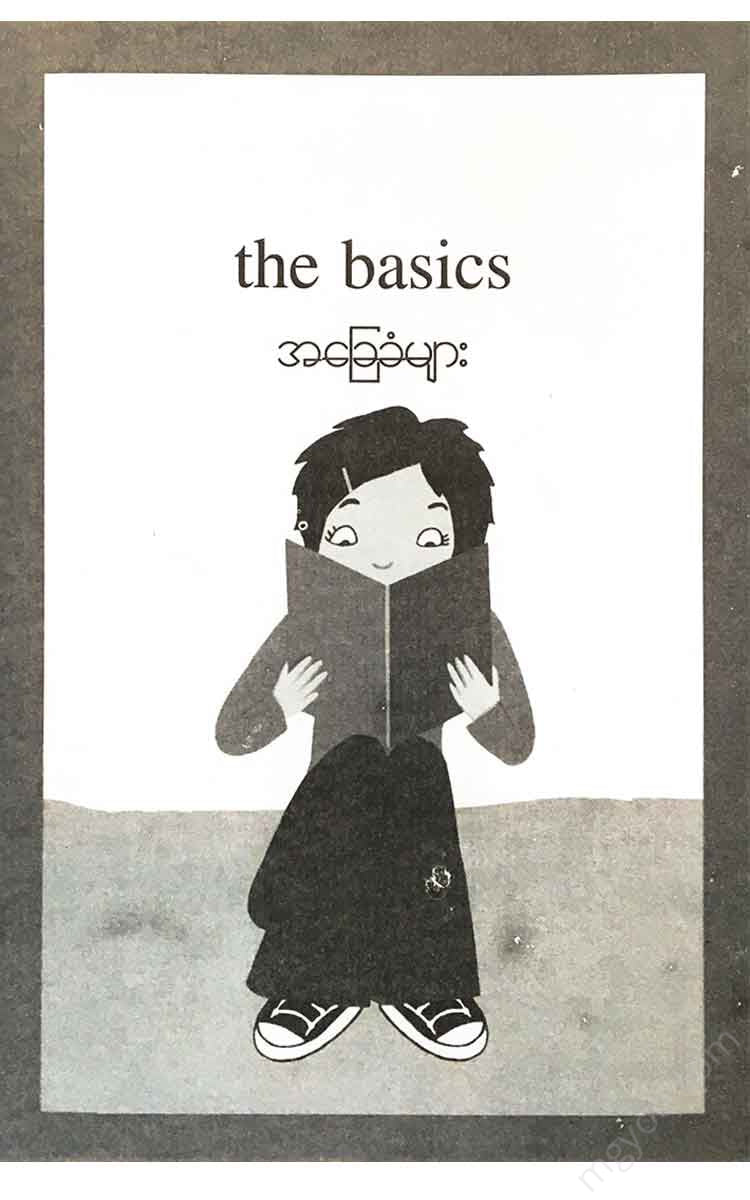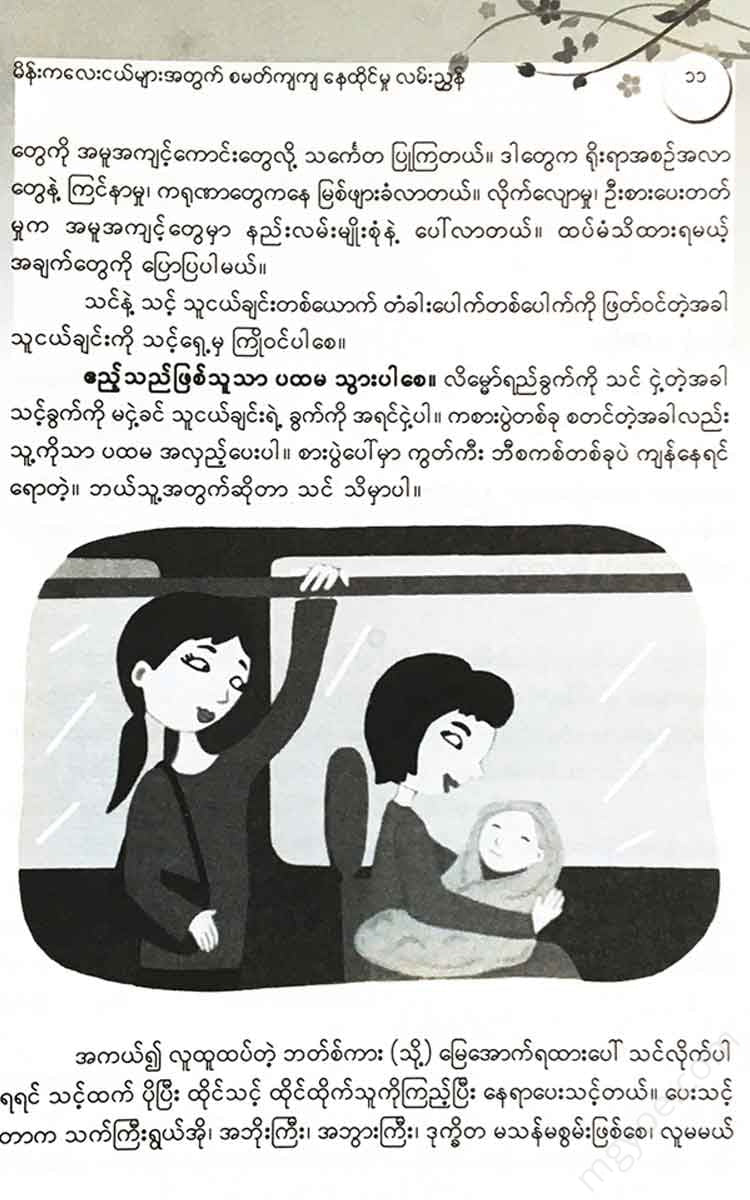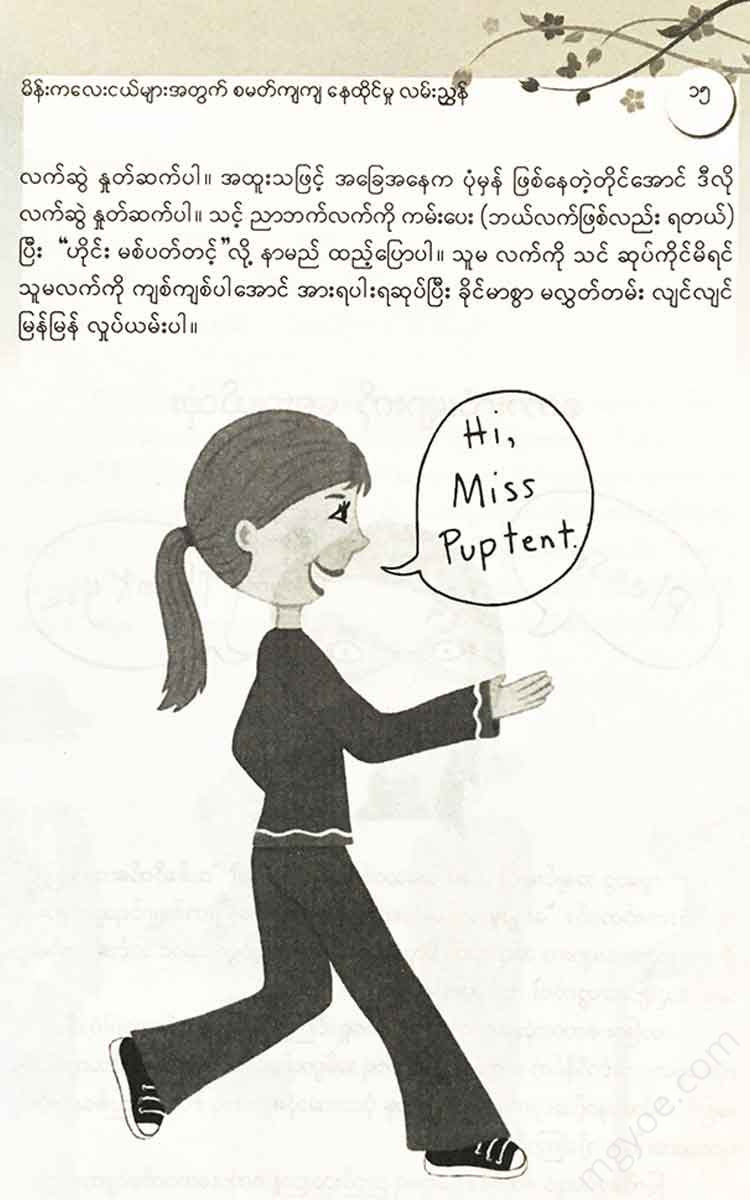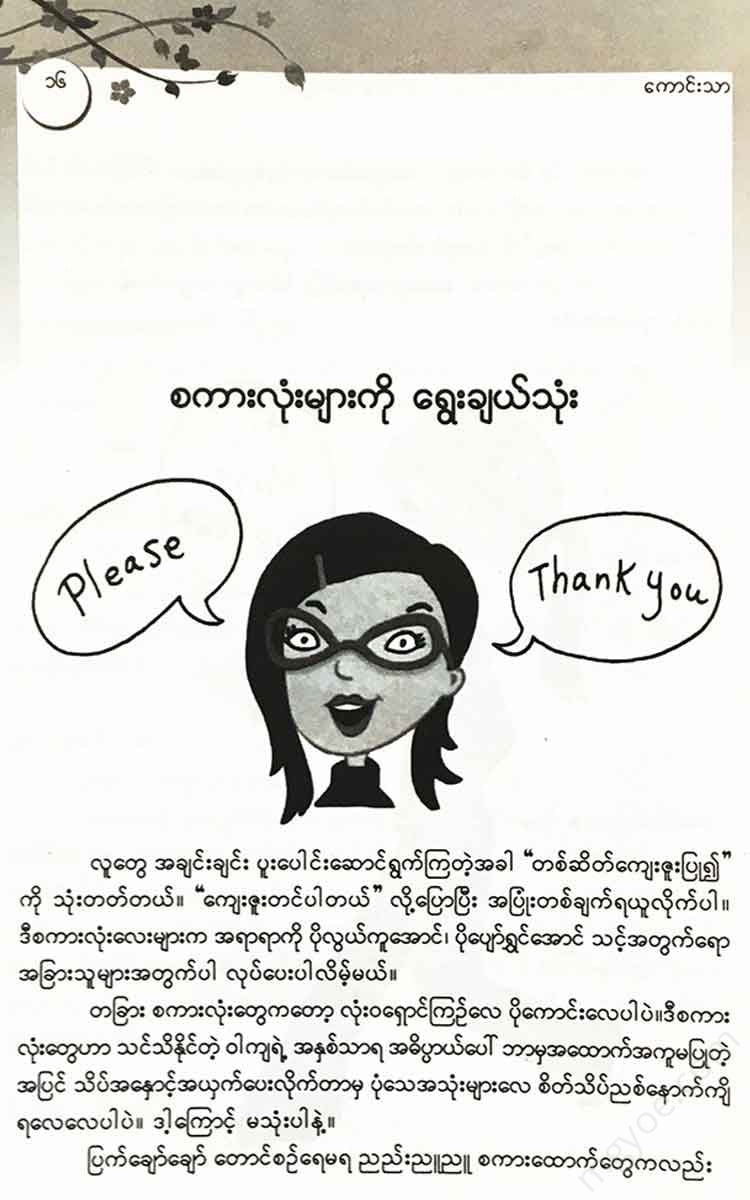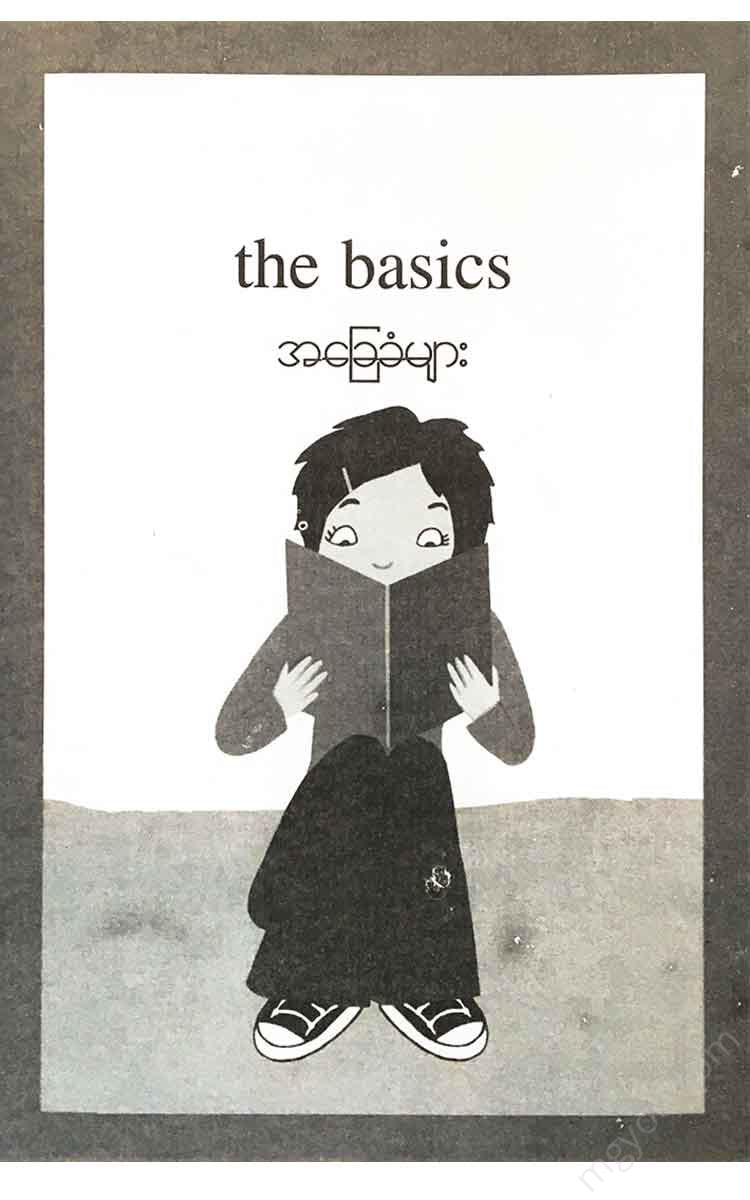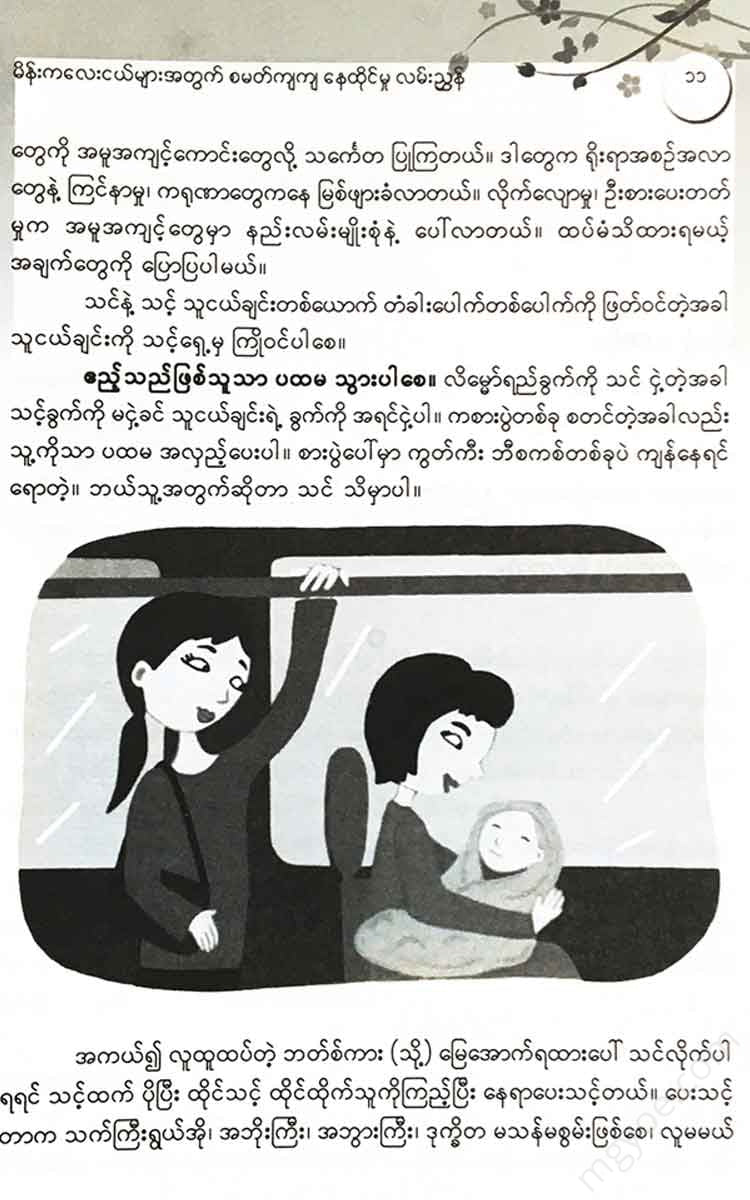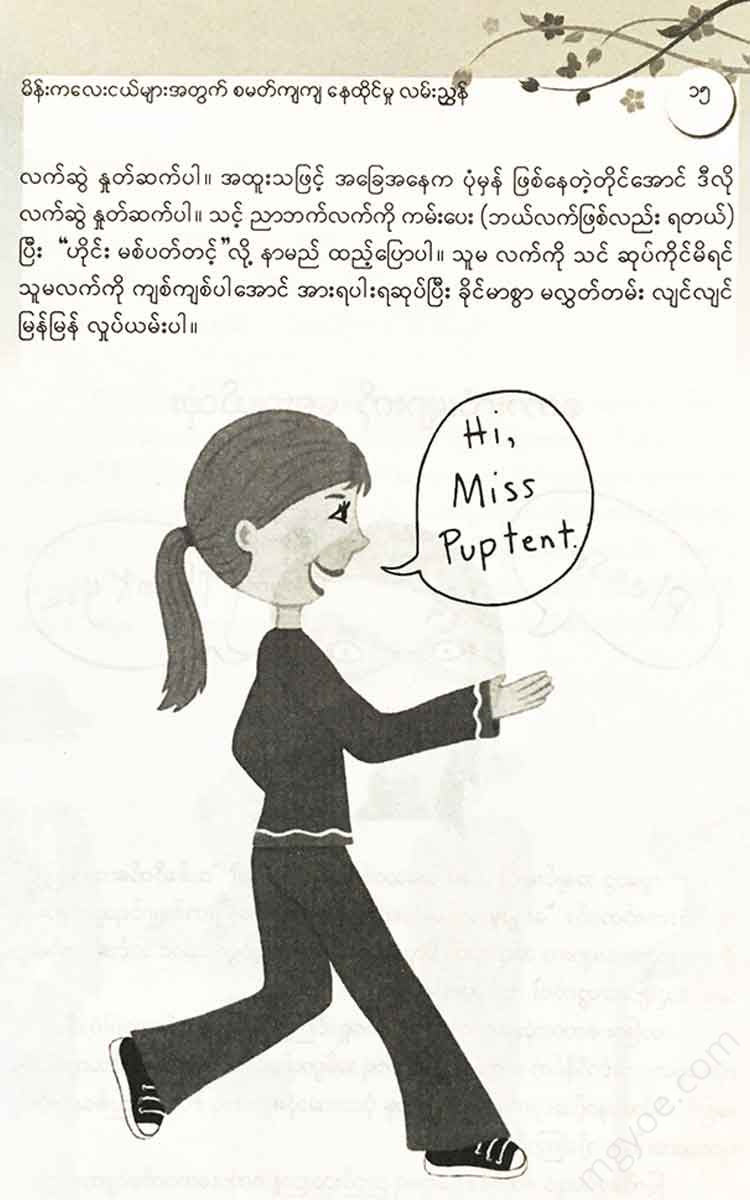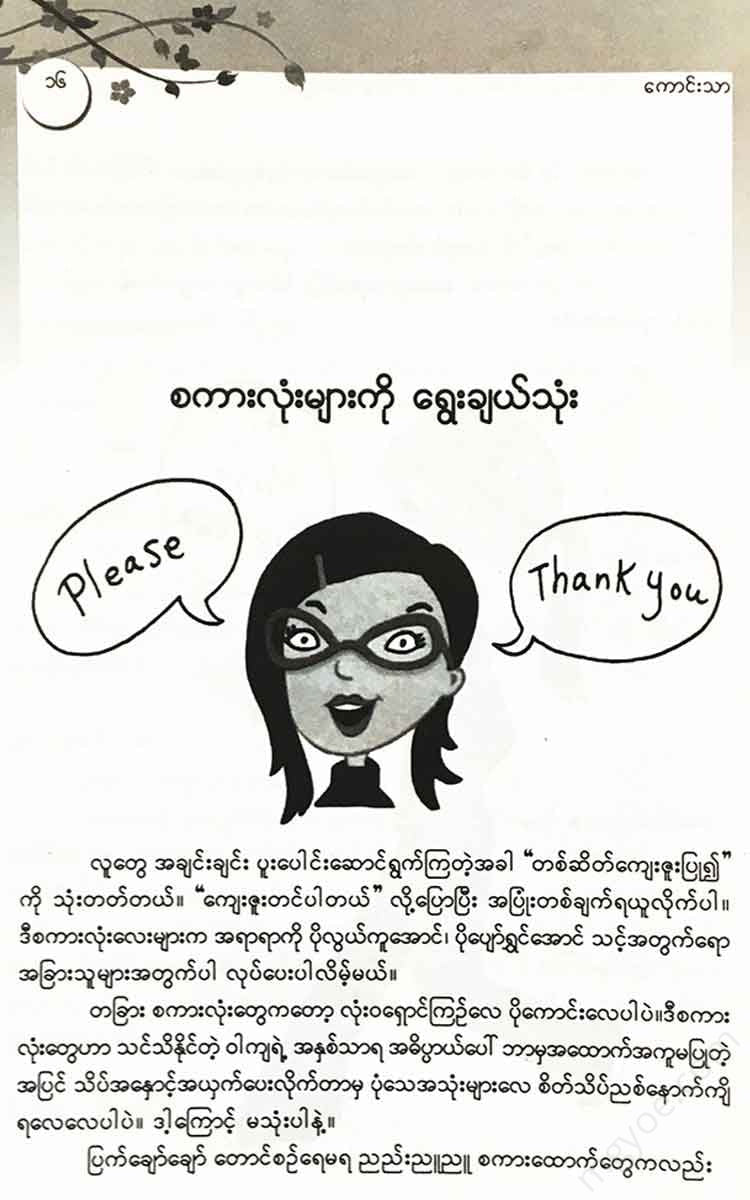စိတ်ကူးချိုချိုစာပေ
Good - A guide to smart living for young girls
Good - A guide to smart living for young girls
Couldn't load pickup availability
a smart girl's
guide to manners
the secrets to grace, confidence, and being your best by Nancy Holyoke Illustrated by Cathi Mingus
I am the first.
A voice that each of us often speaks within ourselves is
"I'm the first."
“This is about being self-sufficient. Doing what we want to do, doing what we love, and never thinking about other people. If we continue down the ego-based path of “me first,” we will spend our days trampling on the rights and feelings of others. The world will soon be filled with conflict and strife.
That's where the habit of sitting comes into play.
Manners are not a set of rigid rules that restrict your style. Manners help us to be comfortable with people. They also make us feel good. Manners teach us how to be kind and considerate to others.
A girl who chooses to be good shows the world that she cares about other people's issues almost as much as her own.
She is also saying that life is not about people doing things for themselves, but about people coming together for a common good.
Now... so who decides what is polite or impolite? It's all of us.
When we talk about manners, we are talking about how a large group of people should behave at a particular time and place. What is polite in one country is not always polite in another. 50 years ago
Things that were considered rude in the past are not rude today. This sense of behavior is based on tradition and culture. Different traditions often coexist.
The more you understand this concept, the more capable you will be. 2 Are you confident enough?
Would you make a good friend or a bad friend?
People will observe your behavior and make their own decisions.
Your next step
Running around on the grass with a good friend is a lot different than standing in the middle of the school hall talking to the principal. You don't think about it, and your style changes, right? That's good.
Manners acknowledge differences between people. People often say things like, “You’re number one,” or “Your needs come first.” These actions are called signs of giving in. For many people, these actions are symbolic of good manners. They stem from traditions and from kindness and compassion. Giving in can manifest itself in many ways in manners. Here are some more things to know.
When you and a friend are walking through a door, let your friend go in first.
Let the guest go first. When you pour a glass of orange juice, pour your friend's glass before your own. When starting a game, let him go first. If there is only one cookie left on the table, mix it up. You will know who it is for.
(If you are on a crowded bus or subway, you should give up your seat to someone who deserves to sit higher than you. You should give up your seat to an elderly person, an old man, an old woman, a disabled person, or a disabled person. If an older person enters the room, the younger person should stand up. This is a way of showing that person that you care about them.
Woman and man
When it comes to manners, women are often treated with special consideration. Many men open doors for women first. In restaurants and parties, women are generally served first. In today's world, there is a growing sense of equality between men and women, but some continue to carry on this tradition.
Good opinions
We all know that you shouldn't judge a book by its cover. But the reality is that most of us make judgments about others based on their appearance, the way they talk, and the way they look. This is especially true when we first meet someone.
Don't let this scare you. Just try to talk about it now. Your style will become more confident. The more you practice, the more natural it will become to them. Just a little work on the outside will make a girl's inner self shine through.
Mama, stand up straight.
Your body will tell you a lot about how you feel about yourself. Hold your head up high. Roll your shoulders back and speak with confidence. When you walk, walk like a girl who is ready to take on the world. You will start to feel that way and others will see you that way too.
Look at each other's eyes.
Look people in the eye. This shows that you are friendly and sincere. This gaze will also show others that you are interested in them and what they are saying.
Say "hello" and "hi"
“Hi” means “I know you. Until we stop talking.” Who knows what being quiet means?
You know. It can mean "I hate you" or "I don't like you".
Use names.
Everyone famous has a name.
If you have trouble remembering names, try saying them out loud as soon as a new name comes to mind. For example, when you are first introduced to a new girl, say her name out loud. (If the name is unclear, ask the person to repeat it.) Use her name several times before you meet her. Use her name several times when you first meet her so that you will remember it tomorrow.
Shake hands and say hello.
When greeting someone with a “hello,” step forward and shake their hand. This is especially true when the situation is normal. Offer your right hand (or left) and say “Hi, Miss Pattin.” If you grab her hand, give her a firm squeeze and shake her hand quickly if you can.
Hello
Miss
Puppet,
Choose your words carefully.
Please
Thank you
When people cooperate with each other , they often use “please”. Say “thank you” and get a smile. These little words will make everything easier and happier for you and for others.
Other words are best avoided altogether. These words don't contribute to the essence of the sentence you know , and they can be very distracting and annoying, so don't use them.
The sloppy, sloppy, and unresponsive advocates are also annoying.
If you use these words in a disjointed way, it will not only appear that you are not interested in what the other person is saying, but it will also make you feel like you are falling asleep in bed, feeling lazy and sluggish.
Many children, when joking with their friends, use “putting down” words to put someone down. “So what?”, “Who cares?”, “Shut up.” “So what?” are funny. But if you use these words to a stranger who is not your friend, you can hurt them even more than before. The words you use can be so hurtful that the person you are talking to will feel hurt and resentful.
It is also important to keep in mind that what is acceptable to one person may not be acceptable to another. For example, the expression "เน้าน" that you use between your best friend and yourself is just a joke, but if you use it with a stranger, you will be treated with contempt and will think that you are rude. If you call someone older than you like this, you will be considered a girl who can be insulting.
Cursive letters
You don't need this kind of usage. When there are thousands of words to choose from, whether in English or Burmese, why use this kind of curse word that is harmful to others and causes harm?
Finally, even the word "satisfactory" cannot be listed if the way you say it, the tone of your voice, or the intonation are different. "I'm sorry."
If you're still angry inside after saying it, your negative tone will only come out.





